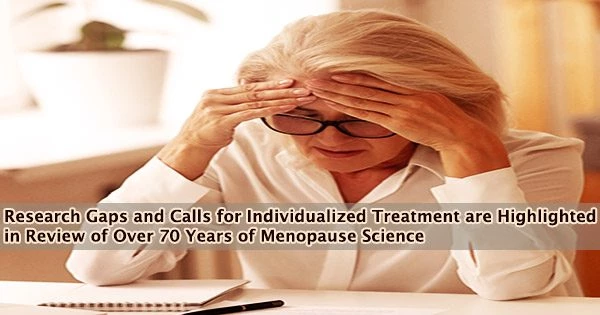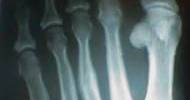Less than 15% of persons who experience menopause actually obtain effective treatment for their symptoms. Treatment choices for women who are dealing with bothersome or severe menopause symptoms are frequently understudied, and some of them may be ineffective or have negative side effects.
A group of menopause specialists summarizes what is known about menopause in a thorough review that will appear in the journal Cell on September 6, 2023. They also call for more research into the progression and treatment of menopause and promote individualized, holistic treatment that addresses both menopausal symptoms and other systemic changes occurring in the body.
“The road to menopause is not difficult for all, but for some, symptoms may be severe or even disabling and disruptive to work and family,” write the authors, who are based in Australia, Italy, and the United States. “Recognition that menopause, for most women, is a natural biological event, does not exempt the use of interventions to alleviate symptoms.”
For this review, the researchers looked at over 200 sources across 71 years to synthesize what’s currently known about menopause. The term “women” is used in this review by the authors in order to represent the terminology and primary emphasis of the majority of the field’s current research. The authors stress the significance of understanding that menopause affects people other than cis women.
Women with bothersome menopausal symptoms should be counseled on treatment options and offered evidence-based therapies. Therapy should be individualized depending on age and health risks, recognizing that health risks may increase with age.
The researchers
Key takeaways from the review include the following:
- The authors to include “final cessation of ovarian function” update the old definition of menopause, which concentrated on menstruation. The new definition aims to include people of all genders, as well as those who have irregular periods, use certain forms of contraception like IUDs, have undergone hysterectomies, and more, even though it does not fully account for diversity.
- The authors contend that age restrictions on medications and therapies are unreasonable and troublesome because the timetable of menopause stages is poorly understood and varies from person to person. While symptoms often start during perimenopause, few menopause therapies are currently approved for perimenopausal patients.
- Hormone therapy, lasers, and plant-based products are only a few menopause treatments that have been adequately examined, according to the authors. They discuss the negative effects and health issues associated with each type of treatment and point out that even the most successful and thoroughly studied alternative currently available, hormone therapy targeting estrogen, are still far from being a perfect cure for all.
- Symptoms vary widely between people and throughout the course of menopause. Even if a person has no overt symptoms, there may still be serious “silent health consequences,” such as bone loss and an increased risk of diabetes, cardiovascular disease, and some types of cancer. Some people experience many severe symptoms, while others experience few or none. The authors also point out that some symptoms, such as short-term memory loss, can be transient and that other symptoms, such as melancholy and anxiety, occasionally arise from pre-existing problems that have been mistakenly linked to menopause because of the stigma associated with it. They also advise frequent exercise and eating a well-balanced diet that is high in protein to lower the risk of developing symptomatic health issues.
- The authors draw attention to the underappreciation of socioeconomic aspects, such as lower life quality and the possible impact of menopausal symptoms on a woman’s ability to function at work.
“Despite decades of research pertaining to menopause, more work is needed,” write the researchers. Going forward, they call researchers to look deeper into when the menopause process starts and to focus on making menopause treatments more effective and safer overall. They underline the importance of researching the symptoms and other health impacts of menopause outside of high-income countries. Additionally, they suggest studying the impacts of menopause on work both from home and in an office, as well as the impacts on people with less traditional career paths such as caregivers and volunteers.
The team contends that menopausal therapy must be comprehensive and personalized for each patient, taking into account the condition’s effects on the patient’s physical and emotional health as well as any other pertinent health issues.
“Women with bothersome menopausal symptoms should be counseled on treatment options and offered evidence-based therapies,” they write. “Therapy should be individualized depending on age and health risks, recognizing that health risks may increase with age.”
“Optimizing health at menopause is the gateway to healthy aging for women,” write the authors.
















